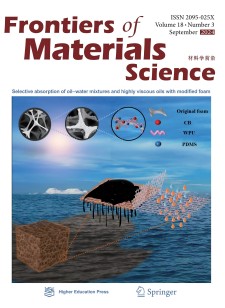A nonmulberry silk fibroin-based robust mandruka for rapid hemostasis treatment
Abstract
Uncontrolled hemorrhage resulting from traumas causes severe health risks. There is an urgent need for expeditious hemostatic materials to treat bleeding incidents. Here, we developed a natural protein-based hemostatic sponge extracted from nonmulberry cocoons that exhibited rapid coagulation and effective absorption. We first built a degumming and dissolution system suitable for the Dictyoploca japonica cocoons to obtain regenerated silk fibroin (DSF). The DSF was then combined with carboxymethyl chitosan (CMCS) by glutaraldehyde (GA) crosslinking to ensure the structural stability of sponges. The resulting DSF–CMCS–GA exhibited remarkable hemostatic properties, displaying the highest absorption rate. It also demonstrated comparable efficacy to commercial hemostatic sponges. The blood-clotting index and hemolysis test showed that the prepared sponge possessed hemostatic activity and good hemocompatibility. Compared with mulberry silk fibroin hemostatic sponges (SF–CMCS–GA), DSF–CMCS–GA showed slightly better effects, making them a potential alternative to mulberry silk. In conclusion, our study introduces the use of Dictyoploca japonica silk fibroin for hemostasis, highlighting the exploitation of wild silkworm resources and providing an excellent silk fibroin-based hemostatic sealant for acute accident wounds and biomedical applications involving massive hemorrhage.

 求助内容:
求助内容: 应助结果提醒方式:
应助结果提醒方式:


